Computer Science News
Dr Sathyawageeswar Subramanian joins the department as a Research Fellow
Dr Sathyawageeswar Subramanian has joined the department to work as a Research Fellow on the "Foundations of classical and quantum verifiable computing" project, which is led by Dr Tom Gur.
Sathya completed his PhD in quantum computing at the University of Cambridge under the supervision of Prof. Richard Jozsa. His primary interests are quantum algorithms and computational complexity theory.
Welcome to Our New Students!
We congratulate all A-level students on their recent achievements. The quality of our intake in recent years has been outstanding and we are delighted to report that we will be welcoming another exceptional cohort of first year students. We look forward to getting to know you all in the coming term, and hope you will enjoy taking your next steps in your development as Computer Scientists.
Due to this year's special circumstances, this cohort will be by far the largest in the history of the department. While there will be challenges for students and staff alike, we will work hard, together with our students, to ensure that everybody can fully realize their considerable potential. We are excited and are looking forward to meeting this new talented group of students
Grasshopper jumping on a sphere gives new quantum insights
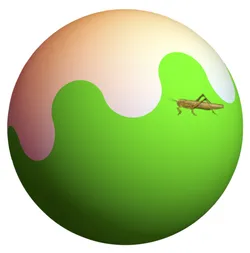 Dr Dmitry Chistikov and Professor Mike Paterson, together with physicists Olga Goulko (Boise State University) and Adrian Kent (Cambridge), have published an interdisciplinary paper Globe-hopping, solving a probabilistic puzzle on the sphere that has applications to quantum information theory.
Dr Dmitry Chistikov and Professor Mike Paterson, together with physicists Olga Goulko (Boise State University) and Adrian Kent (Cambridge), have published an interdisciplinary paper Globe-hopping, solving a probabilistic puzzle on the sphere that has applications to quantum information theory.
Suppose a lawn must cover exactly half the area of a sphere. A grasshopper starts from a random position on the lawn and jumps a fixed distance in a random direction. What shape of lawn maximizes the chance that the grasshopper lands back on the lawn? A natural guess would be that a hemispherical lawn is best. It turns out, however, that this is nearly never the case — there are only a few exceptional jump sizes.
This work involving spherical geometry, probability theory, basic number theory, and theoretical physics appears in the Proceedings of the Royal Society A and shows, apart from concern for the well-being of grasshoppers, that there are previously unknown types of Bell inequalities. The Bell inequality, devised by physicist John Stewart Bell in 1964, demonstrated that no combination of classical theories with Einstein's special relativity is able to explain the predictions (and later actual experimental observations) of quantum theory.
A University press release can be found here.
WATE PGR commendation for Alexander Noll
 We are very happy to report that Alexander Noll, PhD student at the department’s Institute for the Science of Cities, has been rewarded with the 2019/2020 Warwick Award for Teaching Excellence for Postgraduates who Teach. As a commendee, the recognition of his teaching comes in addition to a £200 teaching endowment. Alexander, who comes from an interdisciplinary academic background and has been teaching on several undergraduate modules of our department as well as the Department of Sociology, commented:
We are very happy to report that Alexander Noll, PhD student at the department’s Institute for the Science of Cities, has been rewarded with the 2019/2020 Warwick Award for Teaching Excellence for Postgraduates who Teach. As a commendee, the recognition of his teaching comes in addition to a £200 teaching endowment. Alexander, who comes from an interdisciplinary academic background and has been teaching on several undergraduate modules of our department as well as the Department of Sociology, commented:
The thought that I was able to contribute positively to somebody’s learning and their time at Warwick in general sparks great joy. It is a great honour to be recognised for my tiny contribution to a community of teachers who work hard on creating a positive learning environment.
WATE seek to recognise outstanding teaching and support of learning across the University. Since 2003, the Awards have helped showcase innovation and commitment from across Warwick's teaching community. Nominations can be made by both students and staff and a panel of judges then creates a shortlist of up to ten nominees. Based on additional personal statements, 10 winners are selected from the shortlist, split into five awards and five commendations.
Seven new academic and teaching staff
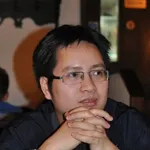
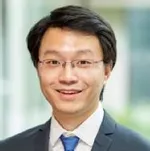

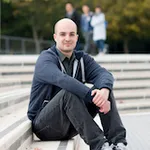
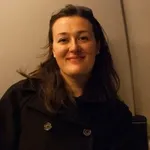
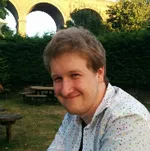
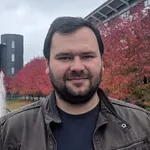
By the start of the Autumn Term, the department will boast seven new staff who have joined us in 2020: Associate Professor Dr Long Tran-Thanh, Assistant Professor Dr Weiren Yu, Senior Teaching Fellow Dr Andrew Hague, Teaching Fellows Dr Greg Watson, Dr Rossella Suma and Richard Kirk, and Research and Teaching Fellow Dr Matthew Bradbury.
Coming from Southampton, Aston and Warwick universities, our new colleagues bring a wealth of teaching and research excellence, with expertise in areas including artificial intelligence, agent-based systems, data mining, information retrieval, educational technologies, image processing, high-performance computing, and cyber security.
Promotion to Associate Professor
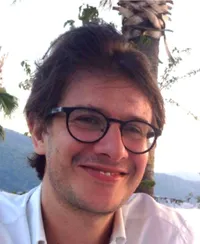 A further piece of excellent news: Dr Paolo Turrini has been promoted to Associate Professor, effective from 1 September 2020. Many congratulations to Paolo, whose recommendation says:
A further piece of excellent news: Dr Paolo Turrini has been promoted to Associate Professor, effective from 1 September 2020. Many congratulations to Paolo, whose recommendation says:
Dr Turrini has maintained an internationally recognised publication trajectory, with papers appearing in highly-ranked journals and conferences. He has also grown his research group to 4 PhD students currently, and developed fruitful research collaborations with several academics in the department. … Dr Turrini has contributed to designing two 4th-year/MSc modules. He has been attentive to his teaching to an exemplary degree, resulting in consistently positive feedback from students...
Promotion to Senior Teaching Fellow
 We are very happy to report that Dr Andrew Hague has been promoted to Senior Teaching Fellow, effective from 1 July 2020. Quoting from his recommendation,
We are very happy to report that Dr Andrew Hague has been promoted to Senior Teaching Fellow, effective from 1 July 2020. Quoting from his recommendation,
Dr Hague... has built on his successful experiences of design and delivery of teaching in Warwick Foundation Studies, already demonstrating a high standard in module development as well as delivery of lectures, seminars and laboratories in Computer Science. Both feedback from students and references from colleagues testify to his excellence and initiative. … Dr Hague is recognised within a valuable network of contacts on campus, in the computer games industry, and other educational and community organisations, where he is known for his capacity for impactful innovation in the wide domain of educational technology. Dr Hague has also already proved himself in several successful outreach initiatives and events.
it remains to say many congratulations!
